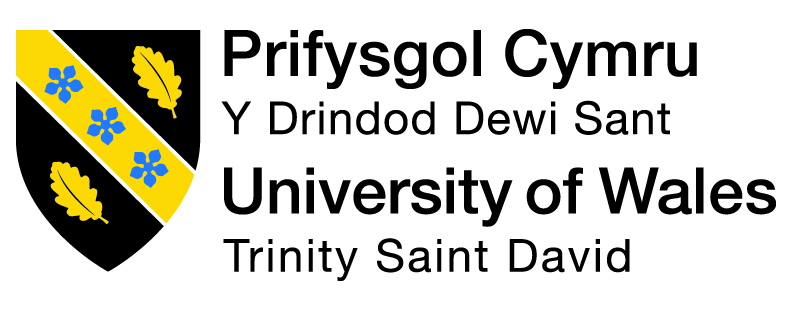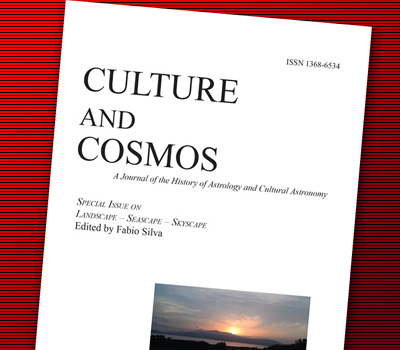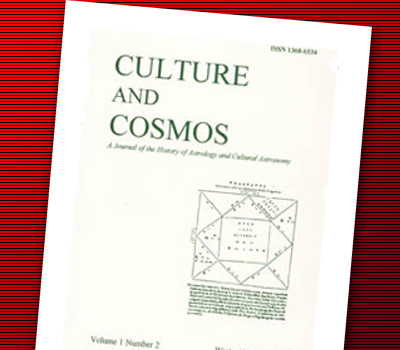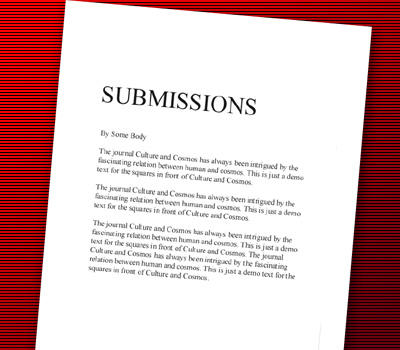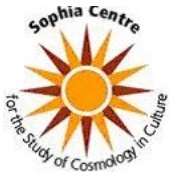We are currently seeking submissions for future volumes of Culture and Cosmos.
Volume 15-2
Editorial
Nicholas Campion
Astronomy and the Apocalyptic Imagination
Interviewed on BBC Radio 4’s IPM programme on 25 May 2013, the astronaut Geoff Hoffman spoke about the ‘Overview Effect’, named by Frank White in 1987 in order to describe the experiences reported by some astronauts when seeing Earth from space for the first time(1). Hoffman described his own experience beginning with the launch, in which for the first time on a solo mission, he waited in the capsule completely alone, without the army of technicians who had been present on previous days, the shaking produced by the temperature fluctuations in super-cooled fuel, a lurch to left and right at ignition, and then an awesome shaking at lift-off. The vehicle, he said, ‘is alive’. A period of transition followed as noise and blue sky gave way to silence and black sky. Hoffman described the shocking beauty of the sun set in a black sky, a black unlike any black he had witnessed before, the profound sense of dislocation from the body that results from weightlessness, and the strange sensation of looking down at the earth, watching the terrestrial sky from above instead of from below, witnessing the flash of lightning storms and meteors plunging into the atmosphere. He saw the world as one, drawing salutary ecological lessons from the visible deforestation of tropical areas. Inspired by the ethereal nature of the earth’s halo, Hoffman hesitated to use the word ‘spiritual’, put to him in a leading question, but was happy to describe the condition that he experienced on his mission as being a ‘state of grace’, words which he said had been suggested to him by a Jesuit priest.
The ‘Overview Effect’ is now the subject of a film by Guy Reid, and is institutionalised in the ‘Overview Institute’.(2) The Institute’s apocalyptic and Utopian agenda is clearly spelled out:
We live at a critical moment in human history. The challenges of climate change, food, water and energy shortages as well as the increasing disparity between the developed and developing nations are testing our will to unite, while differences in religions, cultures, and politics continue to keep us apart. The creation of a ‘global village’ through satellite TV and the Internet is still struggling to connect the world into one community. At this critical moment, our greatest need is for a global vision of planetary unity and purpose for humanity as a whole.(3)
For some astronomers, experiences such as Hoffman’s provide a radical step into a ‘new’ politics. As formalised by the Overview Institute and placed into a historical context, they are reminiscent of dreams of new worlds and journeys into space that have characterised western thought since the ancient world.
Nick Campion,
School of Archaeology, History and Anthropology,
University of Wales Trinity Saint David.
(1) Geoff Hoffman, BBC Radio 4, IPM, 25 May 2013, http://www.bbc.co.uk/programmes/b01sjn9l; Frank White, The Overview Effect—‘Overview’, http://vimeo.com/55073825; The Overview Institute, http://www.overviewinstitute.org/.
(2) ‘Overview’, http://vimeo.com/55073825; The Overview Institute, http://www.overviewinstitute.org/.
(3) The Overview Institute: Declaration of Vision and Principles,
http://www.overviewinstitute.org/about-us/declaration-of-vision-andprinciples [accessed 25 May 2013].

